The situation of migrant workers is terrible, it is like in the time of slavery.
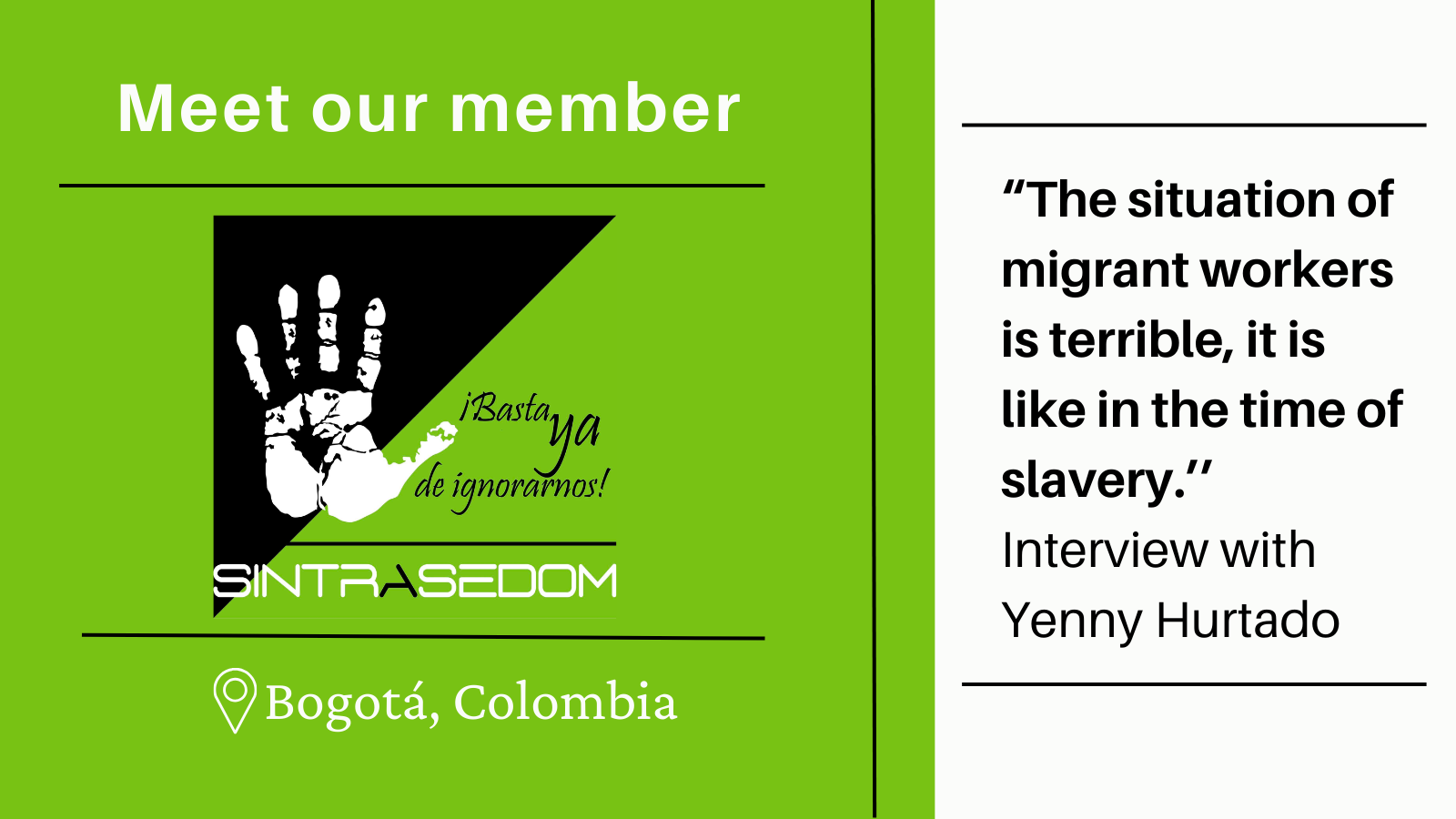
Leer entrevista en español aquí.
SINTRASEDOM is a civil society organisation based in Bogota, Colombia. Vivian from the GAATW International Secretariat interviewed Yenny Hurtado, Founder and President of SINTRASEDOM, in November 2023 to better understand the organisation's work, history, and context. The original interview was in Spanish and translated into English.
Vivian: How and why was SINTRASEDOM created?
Yenny: The Domestic Service Workers Union (SINTRASEDOM) is almost 50 years old and was founded by 25 domestic workers. We were convinced that a union of this type should be created and directed only by domestic workers. Initially, we started with 25 women and became many more. We have reached 500-600 women members at some point, but one of the shortcomings is we have not prioritised long-term support. However, we have been working towards sustainability to ensure the continuity of our work.
I am from Cali, and although I started working young in Bogotá, it was in Cali where my colleagues and I decided to form a union and created the statutes. Furthermore, the Ministry of Labor required that the organization's headquarters be situated in Cali, and thus, we established the headquarters in the capital city.
Vivian: What was the step that prompted you to organise as domestic workers?
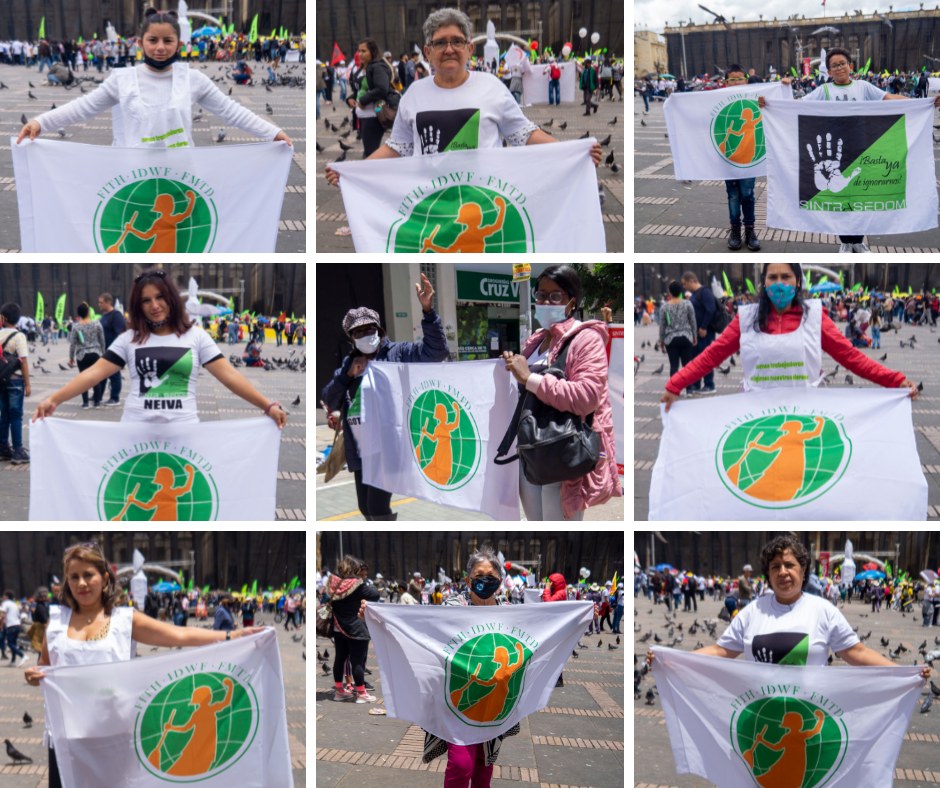
Y: We have a very good relationship with feminist groups and individuals, who have been our unwavering support system. Our first president at SINTRASEDOM collaborated with a feminist group and proposed that we initiate a movement of domestic workers. Fortunately, we had identified a group in Cali and formed alliances with other feminist groups in Bogotá. We were joined by feminist women, including Magdalena León Lucero Zamudio, and feminist deans from several universities, including Casa de la Mujer de Colombia and other universities in Peru. Our alliance with them helped us create a formidable union that still stands strong. This is how we formed the union with invaluable support from our feminist allies.
Vivian: How good! It means that you’ve had a lot of support from the beginning. And in that sense, what are the main areas in which SINTRASEDOM works?
Y: We work in the area of human rights, particularly on migration issues and defending the rights of domestic workers. We also aim to influence public policies from the central government. For instance, Conventions 189 and 190 of the International Labor Organization have been approved but have not yet been applied. However, our primary focus is on supporting unions. We no longer work with feminists directly but solely at the union level. That's what we do.
Vivian: Do you also work with other union organisations or are you the only domestic workers union recognized in Colombia?
Y: There are other unions in Colombia, including ones in Medellín and Cali. There are three that are legally constituted. However, SINTRASEDOM is the only union recognized at the national level
Vivian: What do you think are the biggest challenges in Colombia's current context? For example, there is a new government, and they have received more migration from the region. How do you measure the relationship between migration and trafficking for labor exploitation, especially in the area of domestic work?
Y: We have supported Colombian domestic workers and, to some extent, have support networks and facilities to access essential services or have their rights guaranteed and respected. However, most of them are not organized. In the case of migrant workers, the situation is terrible; it is very worrying, and that is why we are trying to gather information to know what the current situation is. We were looking for resources; in theory, we could apply a survey in two months.
Vivian: When you mention that the situation is terrible for domestic workers who are not organised, what do you mean? What is the situation for them?
Y: I mean that they don't have social security, they don't have good salaries, their employers abuse them, they don't give them days off. They are all situations like in the time of slavery. They work from Sunday to Sunday; they cannot have days off, have very low minimum wages, nothing. That's why the employers abuse them and make them work 12 to 15 hours daily. That's the problem.
Vivian: In the case of migrant women, do you think there is a greater vulnerability in Colombia?
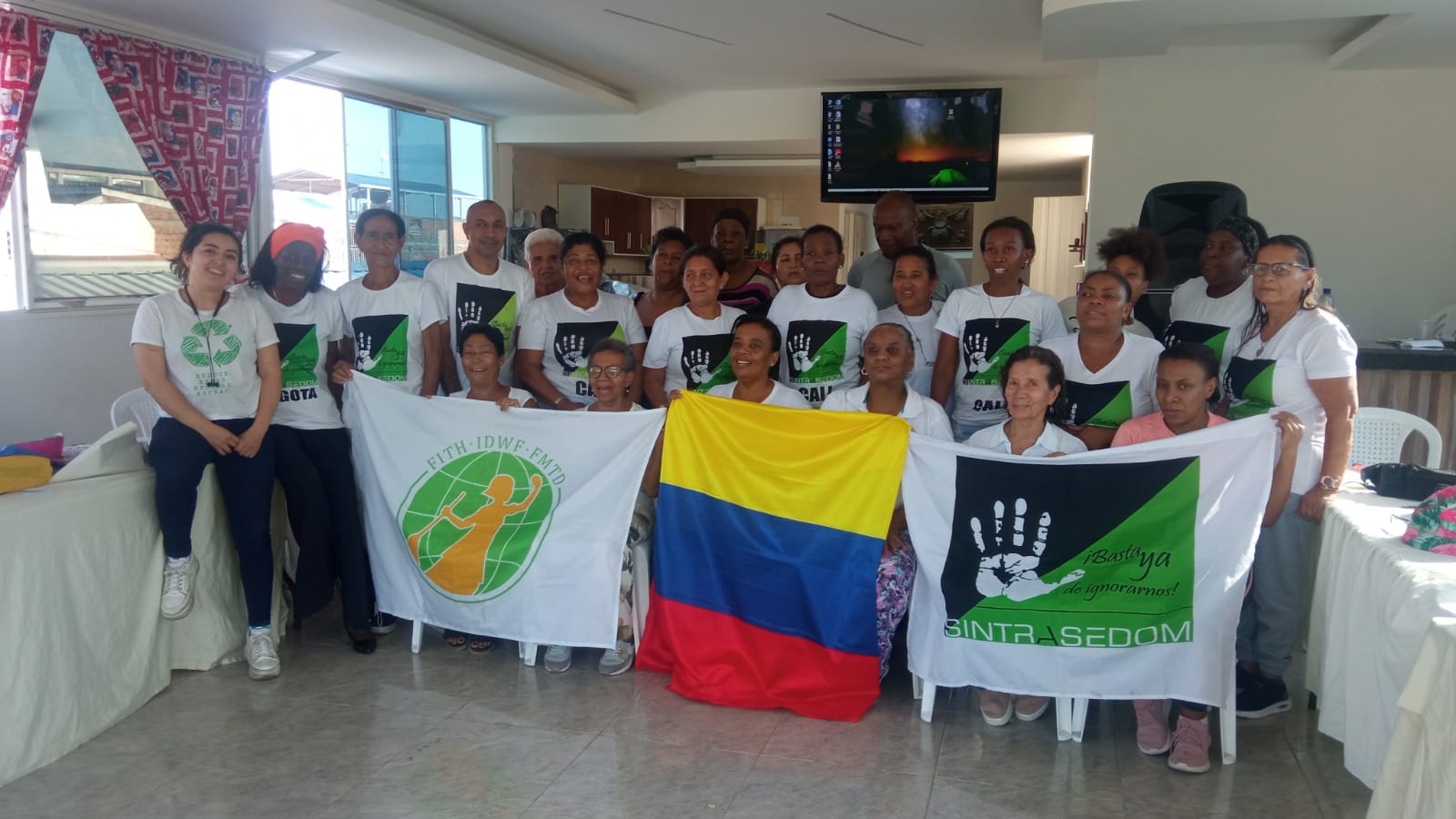
Y: They are much more vulnerable. At least in the case of Colombian domestic workers, they respect them somewhat because we demand. However, now, what they do is hire migrant women to give them much less than the minimum wage, either for a plate of food or to sleep at home. They are totally unprotected. There is this decree that the government issued where it grants them a work permit, but that is not valid in practice. Their rights continue to be violated, which is why they must protest and fight. That's the situation with them.
Vivian: And have you, as SINTRASEDOM, attended to these cases? What is your relationship with these migrant workers who you know are victims of labor exploitation?
Y: As SINTRASEDOM, we try to work and advocate for them, but there are quite a few of them because, in Colombia, there are approximately one million Venezuelan women, so it isn't very easy for them.
Vivian: In the advocacy work you do at the union level, how do you incorporate the learning of the women you work with?
Y: We have a school with professionals who are experts in human and labor rights, among others. So, every 15 days, we travel to different cities in Colombia, do the workshops, and involve the women domestic workers. Then, they are the ones who provide these training sessions in their communities; that way, we can evaluate whether or not they learned during the workshops provided.
Vivian: So how do you incorporate, in your advocacy work, what you learn from hearing women’s lived experiences?
Y: With all the information we collected, we are creating our statistics and newsletters to continue disseminating everything we have learned so that it is not lost. That is the idea because, as you know, we do not have many resources to train more women from all over Colombia. We make videos, flyers, and other materials based on what we learn in our work. We try to continue training and demonstrate what has been learned. That's the way we work.
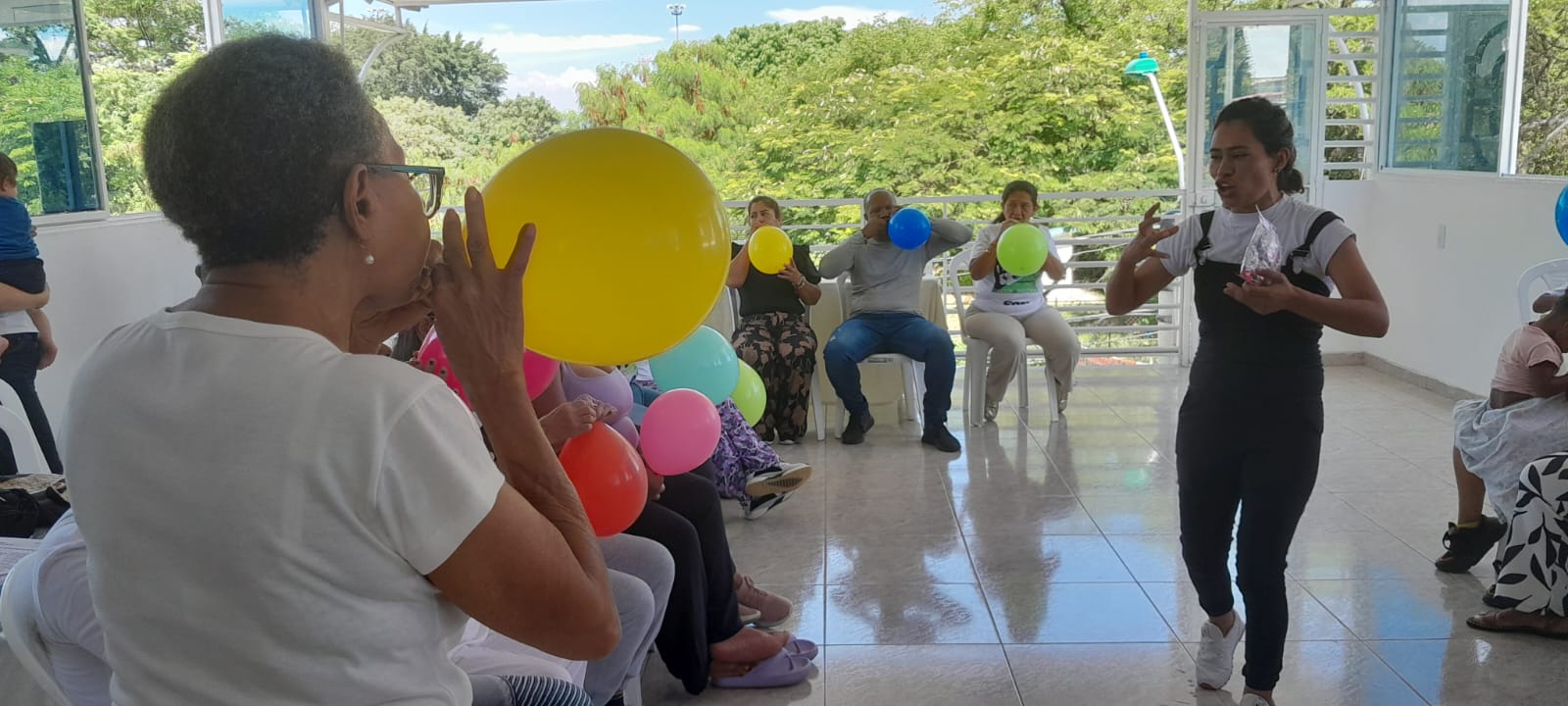
Vivian: I understand then that you try to collect these learnings, prepare user-friendly materials, and distribute them to the women so they can replicate it to other women. That is, they make these somehow cheaper for the union than all the costs that training implies.
Y: It is cheaper, and we can cover more women without needing so many resources since we have limited core support.
Vivian: Regarding GAATW, how do you evaluate your participation within the Alliance? What does it mean to you to be an Alliance member?
Y: For us, it is essential to participate in this space; sometimes, we can feel a little distant due to our nature of being domestic workers and grassroots communities when professional women academics are also part of it. So, sometimes, it has become difficult to follow all the activities or meetings due to various needs such as a computer or good internet access. However, being part of the Alliance has helped us a lot because it has allowed us to publicise our union and participate in several important events. It is crucial that other colleagues also participate; however, due to their jobs or the lack of computers, it has been a bit complicated.
Vivian: I agree with what you mentioned. It should not be assumed that everyone has the same resources or access to platforms. I have no more questions. Would you like to add anything else about your future work perspectives?
Y: In 2024, we aim to finish the survey I mentioned. We want to strengthen SINTRASEDOM and are learning to access new resources and collaborators. Our weakness is on that side, so it will be a challenge for us to achieve international cooperation.
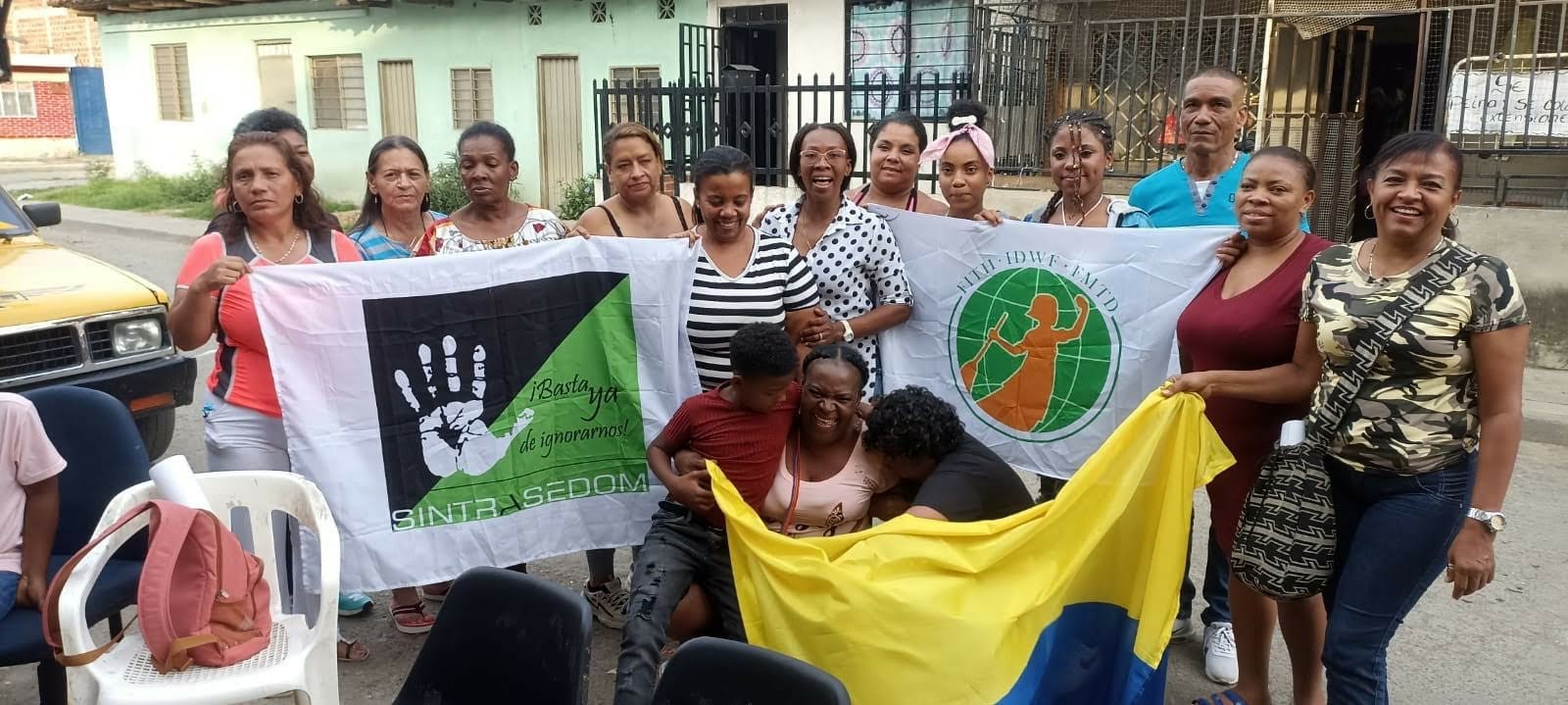
Also, our future goals are to train two colleagues in each region of Colombia to go door-to-door and on the street and apply for the survey because we believe that virtual platforms do not work. We feel that those surveys online do not work and that we lose information. That is why we were looking for funds, and we also wanted to provide an incentive to colleagues who are investing part of their time in collecting this information. At the moment, we have already obtained the tablets, and that is a great support.
Vivian: Thank you for this conversation and your time, Yenny. It has been a pleasure to understand more about the work of SINTRASEDOM.

